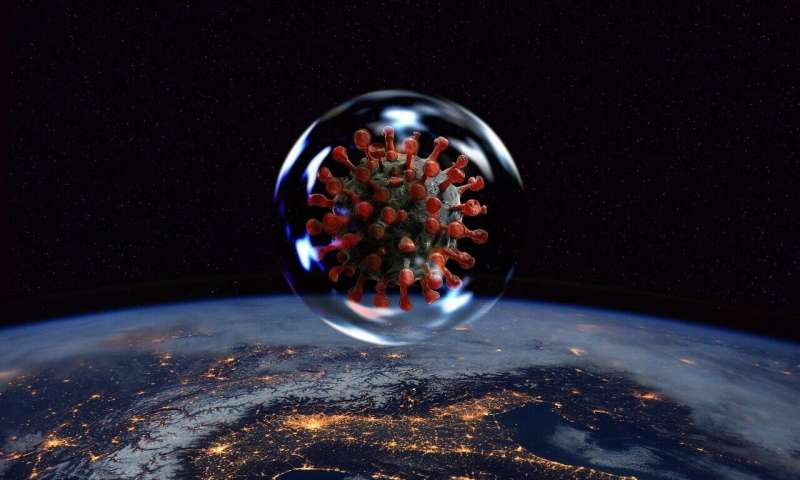
In a collaborative study, Cleveland Clinic researchers sought to understand how COVID-19 infection affects pregnant mothers and their children. They published the results of their clinical study in Cell Reports Medicine.
The study involved 93 mothers with COVID-19 and 45 of their infant children who were exposed to SARS-CoV-2 (the virus that causes COVID-19). Led by Jae Jung, Ph.D., Director of the Cleveland Clinic Global Center for Pathogen & Human Health Research, and his collaborator from the University of California, Los Angeles, Karin Nielsen-Saines, MD, the research team studied immune profiles for more than 1,400 cytokines and other inflammatory proteins collected from peripheral and cord blood samples.
“We know that pregnancy increases maternal risk for COVID-19, but relatively little is known about the long-term consequences of in utero exposure for infants,” said Dr. Jung, who also chairs the Department of Cancer Biology and directs the Infection Biology Program. “It is an area needing further study since generally there is evidence that maternal immune activation in pregnancy is linked to potential long-term neurodevelopmental disorders in early childhood and young adulthood.”
The mothers and infants studied were part of the COVID-19 Outcomes in Mother-Infant Pairs Study, which is a prospective observational cohort of mother-infant pairs diagnosed with SARS-CoV-2 infection in pregnancy in the United States.
The researchers compared maternal blood specimens collected close to the initial detection of SARS-CoV-2 and at different time points throughout pregnancy and delivery. They found that COVID-19 dysregulates maternal immune response, with different immune signatures between mothers with asymptomatic and severe disease.
Most notably, compared to mild or moderate disease, pregnant women with severe COVID-19 exhibited significantly more inflammation and elevated levels of a protein called IFNL1 (interferon lambda 1) and the receptor it binds with, IFNLR1, which plays a critical role in protecting against viruses.
“This increase in interferon lambda signaling may help explain why we see relatively little direct transmission of COVID-19 between mother and baby during the period right before or after birth—what we call vertical transmission,” explained Suan-Sin (Jolin) Foo, Ph.D., a research associate in Dr. Jung’s lab and co-first author on the paper. “More research will be necessary to determine if increased expression of IFNL1 and IFNLR1 does in fact block vertical transmission.”
Despite the lack of evidence for robust vertical transmission, the researchers found that SARS-CoV-2 infection alters maternal immunity at delivery and that gestational SARS-CoV-2 exposure alters infant immunity at birth.
At delivery, the women exhibited dysregulated levels of several cytokines that are associated with pregnancy complications, including MMP7, MDK, ESM1, BGN and CD209. Among infants, prenatal exposure induced the expression of cytokines related to T cells, which are a type of immune cell involved in recognizing and attacking specific antigens.
The majority of births within the cohort were healthy, but there was a high incidence of some complications, including preeclampsia and fetal growth restriction. More research will be necessary to understand the extent to which the observed immune changes are related to these clinical outcomes.
Source: Read Full Article
